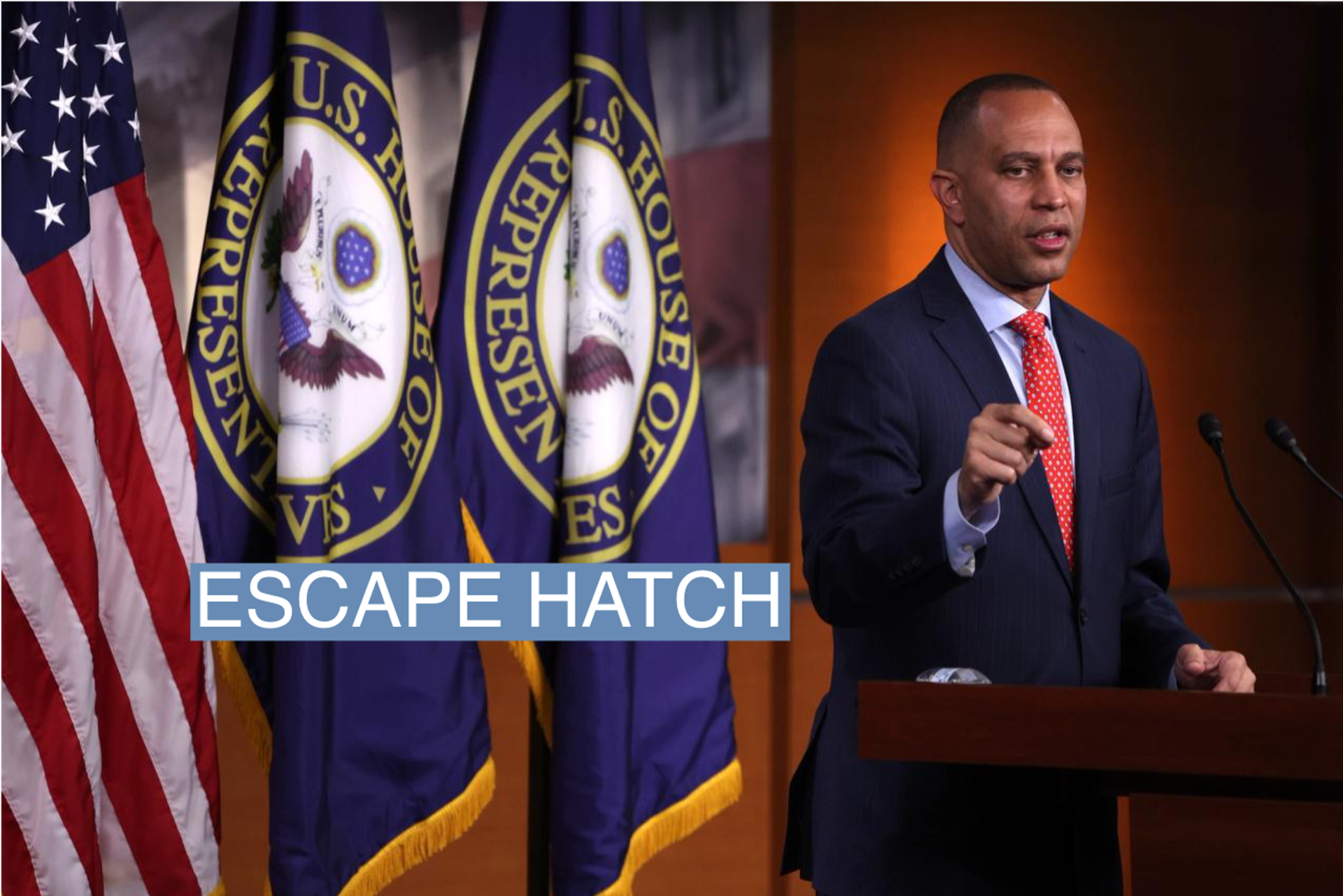The News
With the debt ceiling deadline potentially looming less than a month away and President Biden preparing to meet with Congressional leaders, Democrats spent Tuesday rushing to prep backdoor options that could be used to address the borrowing limit in an emergency.
Here’s a rundown.
DISCHARGE PETITION
House Minority Leader Hakeem Jeffries announced in a “dear colleague” letter that Democrats were setting up a so-called discharge petition that could potentially be used to address the borrowing limit if just a handful of Republicans choose to go along. The tactic would allow a majority of House members to force a vote on a clean debt hike, end-running GOP leaders if they refuse to bring it to the floor.
Legislation has to sit in committee for at least 30 days before a discharge petition can move it to a vote. But Democrats revealed that they had quietly introduced a shell bill in January that could be used as a vehicle for the debt ceiling hike. In his letter on Tuesday, Jeffries said Democrats had filed a special rule that would bring the legislation to the floor once they gather 218 signatures, which they can start collecting on May 16.
“Democrats were prepared and began laying the procedural groundwork for this months ago — this is a responsible step that will keep all of our legislative options open,” a senior Democratic aide told Semafor.
But there are caveats. First, Democrats would still need five Republicans to go along. Second, procedurally, it’s unclear that the discharge petition could be used to hike the debt ceiling before a June 1 deadline when Treasury Secretary Janet Yellen has warned the U.S. could face default.
The U.S. Chamber of Commerce released an analysis suggesting the procedure could force a vote in the House to pass a borrowing limit increase by June 8. Republicans on the House Rules Committee could also use certain procedural tactics to delay a vote until June 12 at the earliest, GOP and Democratic aides confirmed to Semafor.
A SENATE FAST TRACK
Senate Majority Leader Chuck Schumer kickstarted steps to consider a fast-track process for the upper chamber to approve a two-year suspension of the debt limit with no strings attached. The bill would be allowed to skip the committee process and reach the floor without any hearings. But it would, of course, still need 60 votes.
THE 14TH AMENDMENT
White House aides have studied the option of simply declaring the borrowing limit unconstitutional under the 14th amendment, which says the government’s debt “shall not be questioned,” and continue paying the nation’s bills, two people familiar with the internal discussions confirmed (the story was first reported Tuesday by the New York Times). The White House didn’t respond to a request for comment.
Though somewhat less discussed than the trillion-dollar coin, the idea has been floated for years. During another high-stakes fiscal showdown in 2011, former president Bill Clinton said he’d unilaterally invoke the 14th amendment to override the debt limit if it meant avoiding a calamitous default. At the time he said he’d do it “without hesitation, and force the courts to stop me.”
There are also concerns about the idea. One of the sources who spoke with Semafor said it would almost certainly spark a lawsuit, leaving the fate of the US economy in the hands of a conservative Supreme Court. Investors could also demand much higher interest rates in exchange for buying Treasury bonds that are considered legally dubious.
Joseph’s and Kadia’s view
There’s reason to be skeptical of all the Democrats’ escape hatches, which are either time-consuming or legally perilous for Democrats to consider. Both routes through Congress would also require a number of moderate Republicans to cross GOP leadership, which so far they’ve had shown zero appetite for doing.
Room for Disagreement
Still, Democratic leaders don’t appear ready to concede anything publicly.
“We have to stand firm,” Schumer said Tuesday at the weekly press conference. He insisted Republicans must raise the debt ceiling or risk economic chaos. The New York Democrat also refused to speculate on the possibility of a short-term debt limit increase that would leave more room for negotiations. “We should not kick the can down the road. I believe we should go with the full two-year extension,” he said.
Democrats are hoping they can pressure Republicans in swing districts by highlighting the effects of across-the-board discretionary spending cuts. “It would dismantle essential investments that middle class families depend upon, imposing an extreme 22 percent cut in just one year, locking in deep and growing cuts for ten years,” says a new strategy memo from the Center for American Progress Action Fund. Democrats have highlighted cuts to spending on veterans, in particular, which Republicans have said is unfair, as they haven’t specified where the reductions would come from.
